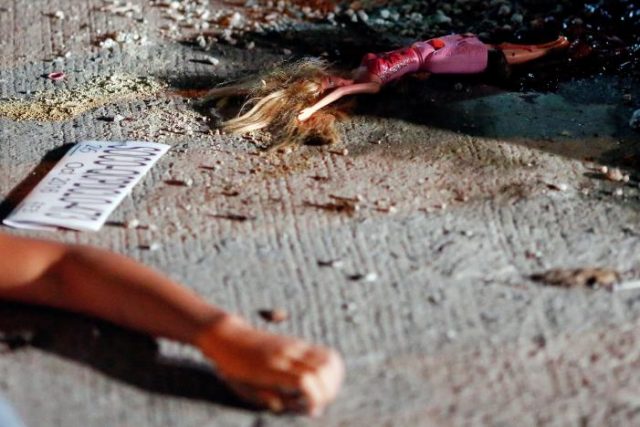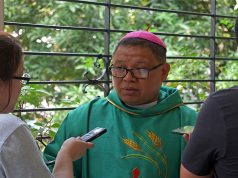
MANILA, Philippines — Three United Nations human rights experts, including special rapporteur on extrajudicial, summary or arbitrary executions Agnes Callamard, have again called on the government to end the killings associated with its war on drugs and ensure accountability.
Callamard, along with fellow special rapporteurs Michel Forst (the situation of human rights defenders) Diego García-Sayán (the independence of judges and lawyers), issued their call just as President Rodrigo Duterte said he would return the anti-drug campaign to the Philippine National Police a month after he had handed it over to the Philippine Drug Enforcement Agency in an apparent reaction to criticism of the killings.
Aside from voicing their concerns, they offered to provide “any technical assistance necessary to ensure protection of the right to life in the Philippines.”
It was the second time Duterte took away the campaign from the PNP. The first time was in January after revelations police officers were involved in the kidnapping and murder of a Korean businessman. However, he also handed it back to the police after a month, citing a resurgence in the narcotics trade.
Despite his most recent move, Duterte has most often rejected any criticism of the war on drugs and his human rights record, especially from foreign leaders like former U.S. president Barack Obama, and experts such as Callamard, who he has targeted for invective-laden tirades and, recently, threatened to “slap.”
The government has also turned down a challenge from Callamard to formally invite her so she can investigate the killings, which some tallies place at more than 13,000 and counting since Duterte became president.
In their joint statement, the UN experts indicated that even handing the drug war to the PDEA had done nothing to bring down the rate of killings, noting that “a great number of new cases have been reported to us involving killings of men, women and children.”
“Many of the killings appear to be perpetrated by law enforcement officials and by unknown assailants,” they added. “This seems to indicate a climate of official, institutional impunity, which can only encourage further killings and other excessive use of lethal force by law enforcement personnel or those acting on their behalf or with their acquiescence.”
“We call on the Government to urgently introduce appropriate measures to stop these attacks and killings being carried out” and to “carry out prompt, impartial investigations into the high number of killings in the context of the anti-drugs campaign, to bring the perpetrators to justice, and thoroughly review its current policy in this regard,” they said.
At the same time, they warned that the government may be in violation of the International Covenant on Civil and Political Rights, which requires it to “protect its population” and imposes the “positive obligation to take effective measures to protect the right to life.”
They also worried that “the exact number of victims was unknown, owing to changes in terminology and conflicts in official reporting, and about the limited number of investigations under way.”
Stressing that “justice is essential to combating impunity,” the three experts said the relatives of the victims “have the right to access all relevant information and to receive appropriate reparation.”
“States are under an obligation to conduct effective investigations,” the special rapporteurs said. “For an investigation to be effective, it must be conducted promptly. It must be impartial and independent, it should lead to holding perpetrators accountable, and relatives must be involved.”
But they noted that “some lawyers, human rights defenders and judges working on the cases have suffered harassment and threats as a result” even as they stressed the importance of ensuring that “judges and the judiciary as a whole are impartial and independent of all external pressures, so that those who appear before them and the public at large can have confidence that their cases will be decided fairly and in accordance with the law.”









